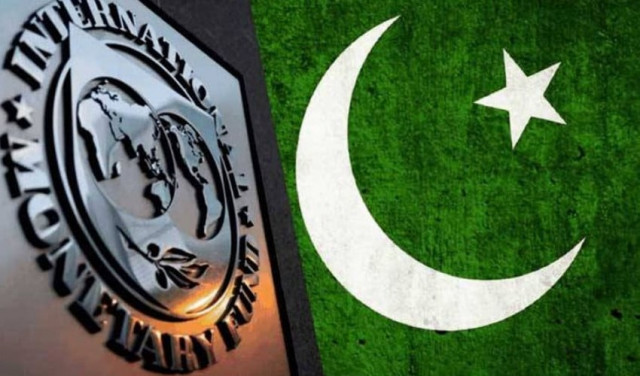Islamabad:
The International Monetary Foundation has asked Pakistan to spend money on parliamentarians’ projects through regular approval processes by giving up a special treatment and again invited to avoid budget adjustments in the middle of the year without prior approval of parliament.
The IMF has also emphasized the importance of a budget strategy paper by recommending its publication six months before the presentation of the budget in a step that, in contravention of the Ministry of Finance’s practice, with not to publish the strategy documents in a timely manner.
In order to increase transparency, efficiency and affordable prices for the public sector development program (PSDP), there is a need to integrate the parliamentarians’ projects into the PSDP process, stated the IMF in its assessment and corruption diagnosts assessment report.
The government must officially release the report by the end of this month.
Unlike the approval of any project from the Central Development Working Party or the Executive Committee for the National Economic Council, the parliamentarians’ schemes are approved by a management committee for the SDG’s Prestation program without much control. Deputy Prime Minister Ishaq DAR is chairman of the management committee.
These are small scales for the welfare of society, which also fall within the local authorities that prevent the provision of electricity and gas.
In the last financial year, the government had spent at least RS61 billion on parliamentarians’ schemes, and RS70 billion has been awarded for the current financial year for these small-scale projects. There have also been votes from the country against spending on these schemes outside PSDP, which can cause waste and less expenses on the ground than the approved budgets.
The IMF has also recommended to limit the PSDP allocations to new projects to only 10% of the total allocations to avoid thinning already sacred resources. There is a trend in any government to advertise and approve new projects despite the fact that existing projects require over a decade to be completed due to limited resources.
The IMF has asked for the Ministry of Planning to rationalize the PSDP portfolio by only preserving projects with a high priority. The political appropriateness has distorted the PSDP allocations, and the federal government spends on the projects that are in the areas that are not even the center’s responsibility.
The government has also run small schemes through PSDP, and funds assigned to these projects are also often abused. The Ministry of Planning did not comment on this article.
Pakistan’s overall governance of public finances remains weak, and there is also a small appetite in the government to ensure transparency and involve the cabinet and parliament in the discussions before the budget.
The Ministry of Finance this year did not take the budget strategy paper to the federal cabinet for its approval in violation of a parliament law.
However, the IMF has recommended that the Ministry of Finance promote the calendar to present and publish the budget strategy paper for January and include macroeconomic and fiscal indicators of these papers. The budget is presented in June.
The global lender has also recommended that the government should also analyze the accuracy of previous macroeconomic forecasts and budget estimates after the end of the financial year.
The IMF, which since Long has called on Islamabad to abandon the tool for supplementary grants, again asked the government to respect parliament’s supremacy. It has recommended that the government should avoid budget adjustments in the middle of the year without getting parliament’s prior approval. To accommodate unexpected expenses such as natural disasters, the IMF has recommended to maintain a contingency pool for such expenses.
Currently, the government is issuing supplementary grants during the financial year and receiving ex-post facto approval of the costs of parliament. Sometimes there are unforeseen expenses such as RS5.8 billion allocation to flood -affected areas in the country on Tuesday.
But there has also been a practice to postpone some expenses at the time of approval of the budget to keep the total size limited to the requirement of the IMF.
E.g. The Ministry of Finance did not approve a grant to the scheme for foreign transfers in the budget due to limited space available. However, after the intervention from the Prime Minister’s office, it approved a supplementary grant of the RS30 billion a few days ago out of emergency response spending.
The financial year has just begun and the government has already started the process of providing additional grants to different ministries.
The Economic Coordination Committee on Tuesday approved a supplementary grant of the RS250 million to the National Security Division for its strategic political planning cell. The cost of setting up the cell should have been made part of the regular budget approved in June.
ECC Tuesday, on a proposal from the Finance Department, also approved the subsidy for Raast QR Code-based person-to-Merchant payments to the tune of RS3.5 billion.
In another important recommendation, the IMF has proposed to amend the legislation on legislation and rules for public procurement of legislative authority and rules to bring an end to preference in procurement for the state -owned entities and charities. It has called on the government to bring these changes aimed at ensuring transparency, efficiency and accountability in the public procurement process.



